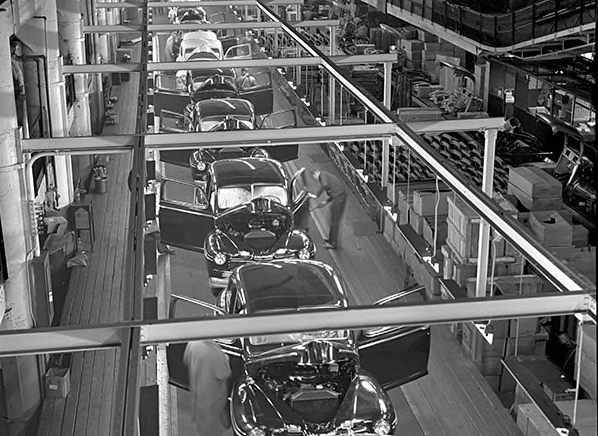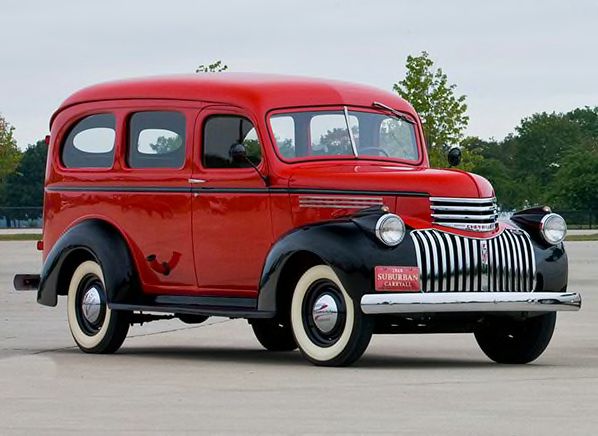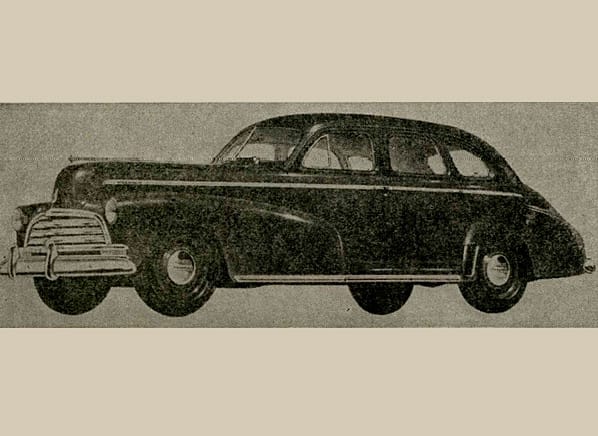Sign In


The May 1946 issue of Consumer Reports noted that the magazine's car reviews were made with the average owner in mind, describing the Everyman and Everywoman of the road as motorists who put less than 10,000 miles a year on the odometer, drove mostly short trips under 30 miles, and expected to keep their cars for at least four or five years.
Those drivers, and the buying tips the publication provided, are strikingly familiar today. While the landscape of the once Detroit-dominated auto industry has certainly changed, in some ways we're still in mid-20th-century America.
Today, Americans drive on average about 12,000 miles per year, according to the U.S. Department of Transportation's Federal Highway Administration—not too different from the "not over 10,000 miles" odometer reading of 1946. Our excursions are also, for the most part, still less than 30 miles today, averaging 10 miles for most trips. In the ride-retention department, we're actually holding onto our car a little longer, about six years, according to market research firm R.L. Polk & Co., compared with four or five years in 1946.

Although the wood paneling and chrome bumpers of many 1940s-era automobiles are long gone—along with zoot suits and pork pie hats—many of the car-buying tips (in italics below) that we gave 68 years ago are still valid.
It's true that they are all pretty good, but some are likely to be much better than others for your own particular needs. You will have more pleasure and less expense if you pick the best car for your uses—the car that suits you best.
2014 take: Most new cars are decent, but some are quite clearly better than others. For the same money, get the one that is best for you and has the right balance of safety, reliability, comfort, and owner costs.
Don't do it that way. The showroom is the worst possible place to make up your mind. Decide at a time when you are not subjected to selling pressure and after you have had a chance to compare notes, mental or otherwise. Decide at home, or on the way back from a road test.
2014 take: True words. Buying a car is a big decision, and it warrants careful consideration. Being impulsive is likely to cost you in some way.
No, but you should certainly ride in and, if you can, drive two or three cars—including the make you finally buy—to get standards for judging. The car you buy should satisfy all the drivers in your family, as well as those who will ride in the backseat. Don't test for top speed or do stunts. Drive each car over the same road in much the same way. Easy riding; easy steering; good control on rough roads on turns and in parking; good vision; quiet performance; solidity of structure; sureness of braking—these are the things to look for.
2014 take: It is key to drive several cars for comparison. After all, most new cars are likely to be demonstrably better than the old, worn-out model you are looking to replace.

No. Usually a car with more horsepower will cost more to operate and will go faster than a less powerful car. Beyond this, horsepower—or horsepower per pound of weight, for that matter—has little practical significance.
2014 take: Most vehicles today deliver more than adequate horsepower. For most people, fuel economy is more important than shaving a tenth of a second off a wide-open throttle blast to 60 mph.
Not unless you get something for your money besides extra chrome strips and two sets of arm rests, visors, etc., instead of one. Worthwhile features would include more adequate tires, better upholstery springs and padding, more plate (instead of sheet) glass, or other items having value in use, not in looks.
2014 take: Often, the high-priced trim lines include expensive, complicated systems that may introduce reliability risks and depreciate more rapidly. Buy features that you use routinely, and don't skimp on safety.
Pay cash if you can. If you borrow, you can do so to best advantage through a collateral loan at your bank, or through a Credit Union loan. If you finance your purchase—buy on "time" and sign an installment sales contract—your money will probably cost least if a bank (rather than a finance company or self-financing dealer) issues the contract.
2014 take: Shopping around for the best finance deal is timeless advice.
So, put on your fedora and stream the Glenn Miller Orchestra on the Internet radio of your 2014 Chevrolet Impala, and remember that there can be value in age-old wisdom.
—Sharon Riley
 Build & Buy Car Buying Service
Build & Buy Car Buying Service
Save thousands off MSRP with upfront dealer pricing information and a transparent car buying experience.
 Get Ratings on the go and compare
Get Ratings on the go and compare
while you shop